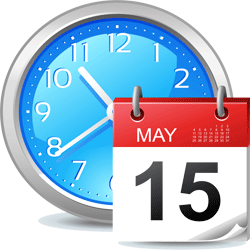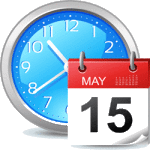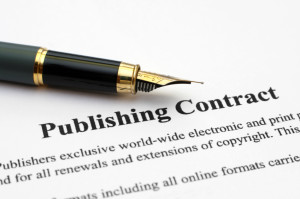John Wilsey teaches history and philosophy at Southwestern Baptist Theological Seminary. He is the author of One Nation Under God: An Evangelical Critique of Christian America and blogs at johndwilsey.com.
 Your book proposal needs to be more than good. Your book proposal needs to be magnificent.
Your book proposal needs to be more than good. Your book proposal needs to be magnificent.
Your book proposal is your work’s first introduction to a potential publisher.
It is imperative that your proposal be clean, eloquent, organized, well-researched, realistic, and compelling.
Think of your proposal as your book’s coming-out party. You are giving wealthy suitors the chance to meet the lovely maiden you have raised from infancy. So you better make sure that she has nice teeth.
6 Elements of a Book Proposal
Element 1: Project Description
The first element of a good book proposal is your topic statement.
In the topic statement, you need to spend a couple of paragraphs broadly summarizing what your book is about.
- Discuss the importance of your topic.
- Clearly state your thesis.
- State the central argument of your book in one or two sentences.
- Give a couple of clear and precise lines about your methodology.
- Explain how your proposed book fits in with your other published works OR clearly indicate if this book will be a revision of your dissertation.
- Write a few lines about your school, your program, and who sat on your committee.
If this first section is clear, concise, and original, your potential publisher will continue reading.
If not, the abyss of obscurity yawns before you.
 Element 2: Target Audience
Element 2: Target Audience
Give details about the target audience for your book.
- Are you writing for scholars?
- Students?
- Religious leaders?
- An informed audience of laypersons?
- Will your book serve as a course text?
Be as specific as possible when you identify your intended audience.
Target audience is one of the publisher’s first considerations.
If your book could serve as a course text, write a list of specific courses that could use your book. Again, be specific. Don’t make up interesting course names.
Look at the course offerings in academic catalogues, and get in touch with professors who teach those courses. Ask these professors if they would include a book such as yours in their course syllabus.
Request their permission to list their name and courses in your proposal.
 Element 3: Historiography/Comparable Works Section
Element 3: Historiography/Comparable Works Section
Give some information on the related book market.
- Where does your book fit within the literature?
- Why is another book needed on your topic?
- What original contribution does your book make?
Write a bibliography of the current literature related to your book. Annotate the 10 to 15 works that are most closely related to yours.
Annotation Includes:
- A paragraph that summarizes the book
- A paragraph that situates your work within the existing field. (A brief description of how your book will add to and differ from the book you just summarized.)
Provide another 20 to 50 titles that are less closely related to your work, but are still germane to your topic.
Show how your book is different from those as well.
The “Comparable Works” section shows your publisher that you are up on the literature.
It demonstrates that you have looked at the books in your field, and that you are confident your book contributes meaningfully and originally to it.
If you can show that your book is a meaningful and original contribution, then you are assuring your potential publisher that your book will make an impact, and thus a profit.
 Element 4: Chapter Outlines/Annotated Table of Contents
Element 4: Chapter Outlines/Annotated Table of Contents
You have to balance 2 goals as you write your chapter outlines:
1. Clear presentation of argument
2. Showcase the features and stories that make your book marketable
Note how you will present your thesis in the introduction of your book and explain how your chapters will argue and further your thesis.
Elements of Chapter Outlines:
- List Chapter Titles
- Provide 1 paragraph of summary for each chapter; include how said chapter will argue/further your thesis (NOTE: Do not make your argument in your chapter outlines. Be clear, but include a dash of ambiguity to leave your reader wanting more.)
- Estimate the length of each chapter (10,000 words = approximately 30 pages of typed, double-spaced text). Many trade presses consider a work of 80-90,000 words the sweet spot.
Element 5: References
Include a list of references, scholars in your field who will endorse your ideas.
Ask 15 to 20 people to look over your proposal and ask them if they will affirm that your proposed book has the potential to make a valuable contribution to your field.
To clarify: these are not people who are endorsing the book. They are endorsing: 1. You, as a qualified scholar and 2. Your proposal.
In other words, you want recognized scholars to affirm that your work will be as valuable as you have stated in your proposal.
Your reference list will give comfort to the potential publisher concerning the viability of your proposed work. When recognized scholars in your field vouch for your project’s legitimacy, it bolsters your credibility.
Don’t be shy about contacting senior scholars and asking them for to help you in this way. Some will decline, but you’ll likely be gratified to see that many are happy to help you succeed.
 Element 6: Writing Sample
Element 6: Writing Sample
The last element of your proposal will be your writing sample.
The writing sample should consist of a chapter that states your thesis, methodology, and organization.
Make sure, beyond all doubt, that your sample chapter consistently reflects how you’ve written your proposal!
The Finished Proposal
Your completed proposal should be about 10 to 15 pages total excluding your sample chapter.
Conclusion
Your proposal represents your first effort at marketing your book.
Consider it a major project in its own right. Devote time and thought to it.
The quality of your book proposal will determine whether or not a publisher will give your work their full consideration.
 Share Your Story
Share Your Story
How many books did you include in your comparable works section?
Did you include references with your book proposal? If so, how did you approach your references?









